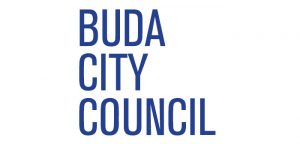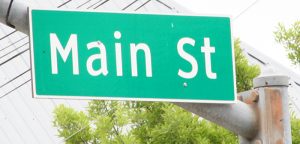By Andy Sevilla
Buda will hold its first bond election ever this November and if voters green light the proposed improvements, the city’s debt could more than triple to $80 million.
Buda council members approved a $55 million bond election and its breakdown into five separate propositions, per the recommendation of the Buda Bond Advisory Committee (BBAC) — a resident-volunteer committee made up of 12 people.
In its July 1 report to council, BBAC said the bonds would serve to address unprecedented expected growth in Buda and facilitate the planning and execution of long-range capital improvements.
“These recommendations were developed by the BBAC after more than four months of study and analysis of existing plans and capital improvement needs,” the report stated. “… BBAC members and the consulting team working with them [GAP Strategies], spent many hours reviewing data, considering alternatives, and engaging citizens of Buda about their needs and preferences.”
According to the latest Buda debt figures provided by Finance Director Sidonna Foust in September, the city has $24.325 million in outstanding principal debt. The interest on that debt is $7.25 million, the figures show.
“I have heard the statistics that even after all of these [propositions] pass and it’s added to our [property tax] rate, we’ll still be the lowest around,” said Katie Bell Moore, a six-year Buda resident and member of the Political Action Committee (PAC) — Yes Buda — supporting the bond. Moore also is a communication specialist for GAP Strategies.
“We’ll still be less than Kyle,” she said. “We’ll still be less than San Marcos.”
Buda’s present tax rate is $0.2979 per $100 of property valuation. With the new fiscal year, set to begin Oct. 1, Buda’s tax rate will lower to $0.2978 per $100 of property valuation.
According to preliminary figures provided by GAP Strategies, and reviewed and finalized by Buda’s finance department, the city’s tax rate could increase to $0.4447 per $100 of property valuation, or increase by 50 percent, if the bonds passed and were issued, according to Moore. She also said that figure is “extremely conservative” with regards to Buda’s expected growth.
In the city’s educational material, officials say if all five propositions pass, the maximum annual property tax rate increase would be $232.20 on a home valued at $173,000, based on the city’s present tax rate.
A home valued at $192,500, could see an increase of $260.88, the material states.
The $55 million in bonds would be issued over time and not all at once, thereby minimizing the tax impact and reducing the initial tax implication, officials said.
For Moore, the time is now to “invest in our future in Buda” and fund the proposed projects, all the while taking advantage of having a low property tax rate, when compared to other Interstate 35 corridor cities.
“The top issue, in Buda, for me is transportation and roads,” Moore said
Proposition Three proposes $12.25 million for streets. That amount would include improvements to the intersection of FM 967 and Main Street, other improvements along Main Street, and work on Old Goforth Road and San Antonio Street.
The bond propositions also allocate funds for a municipal facility, public safety facility, drainage and parks and trails.
Moore said she has spoken with active community members in Buda and has not heard of any opposition to the $55 million in bonds. She said the biggest challenge will be distinguishing the Buda propositions from election matters in Austin.
Moore said many Buda residents commute to Austin for work and come across political signage in opposition to the Austin rail bond.
“You don’t have to go too far into the city to see all the anti-proposition signs,” she said. “You could see a lot along Brodie [Lane].”
“We’re not as big as the Austin one. We’re trying for different things.”







